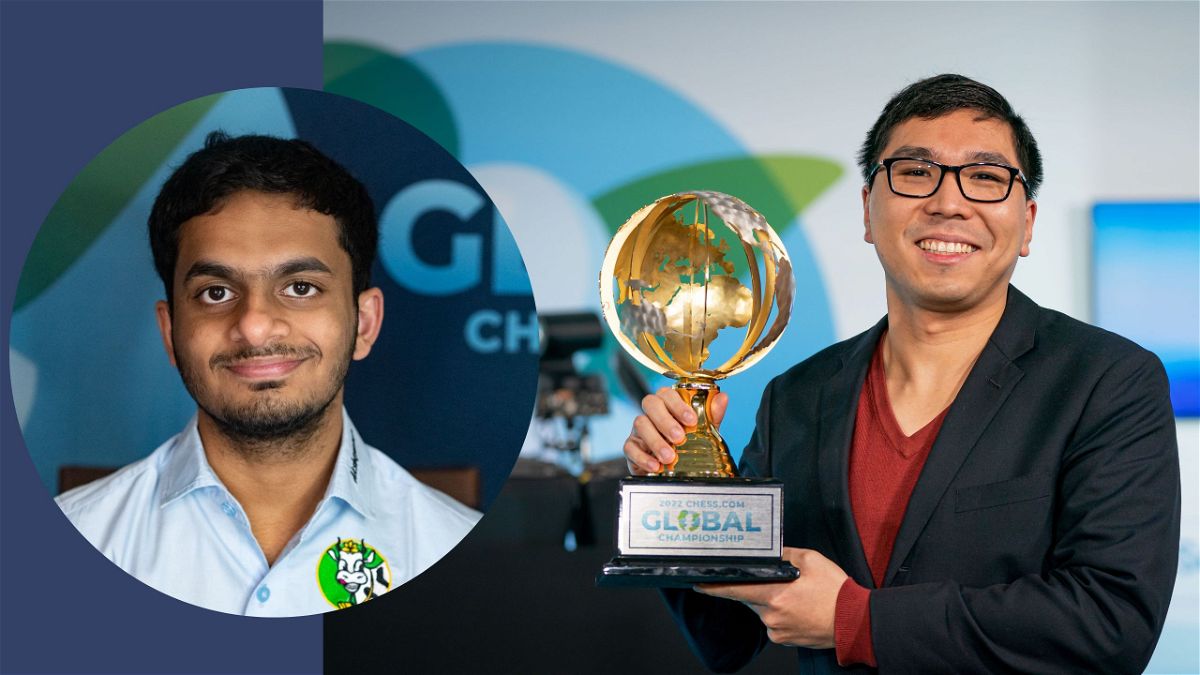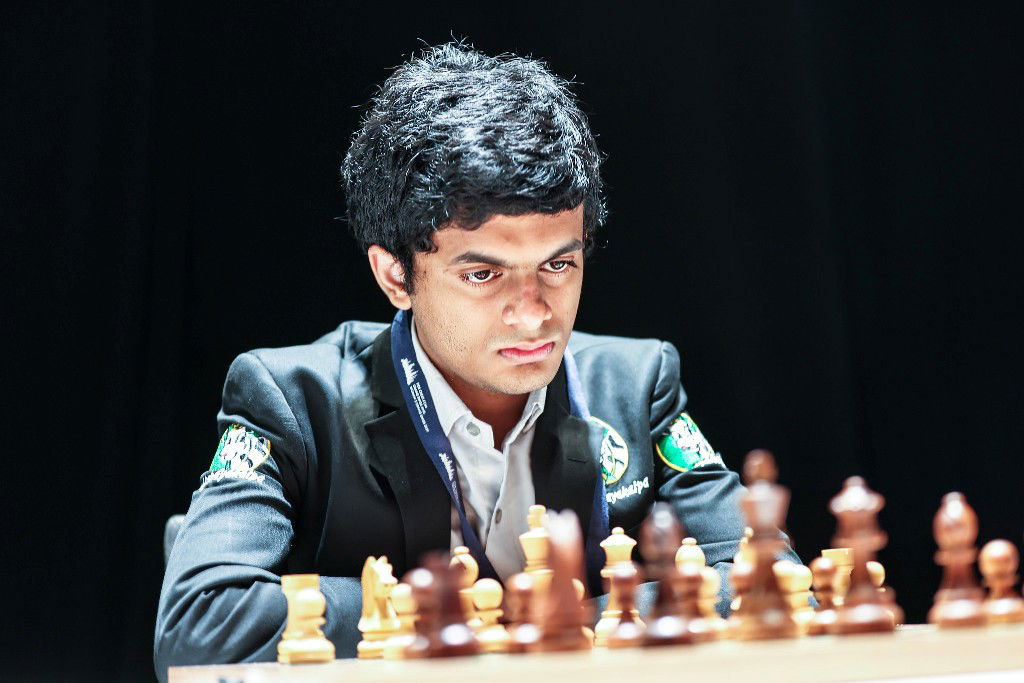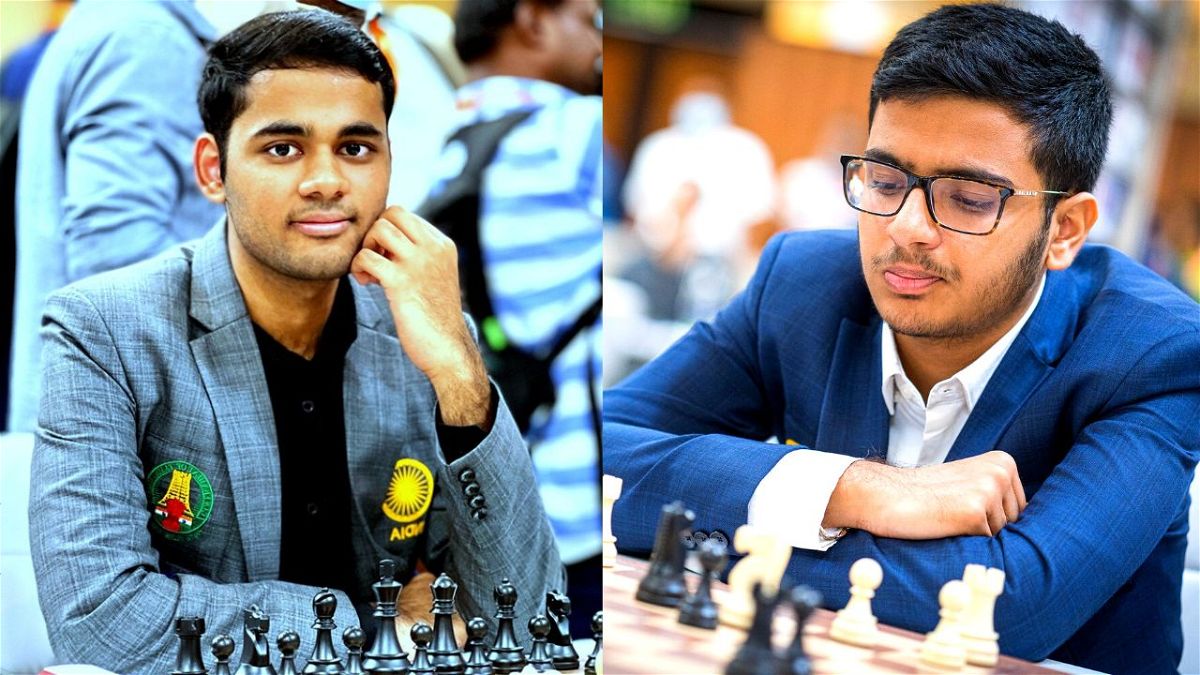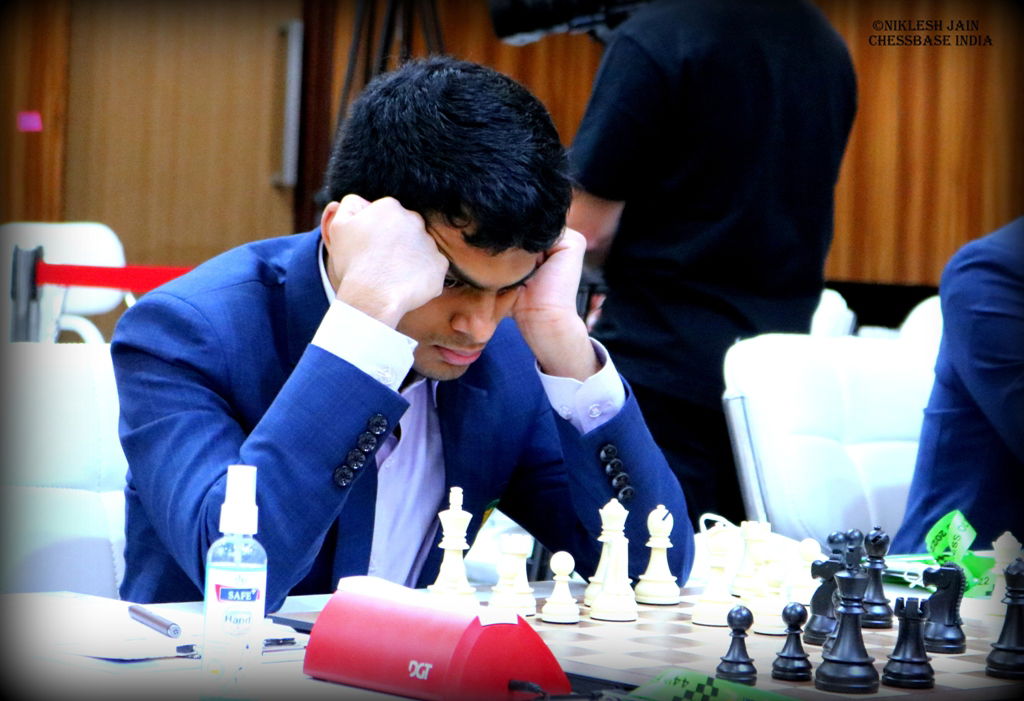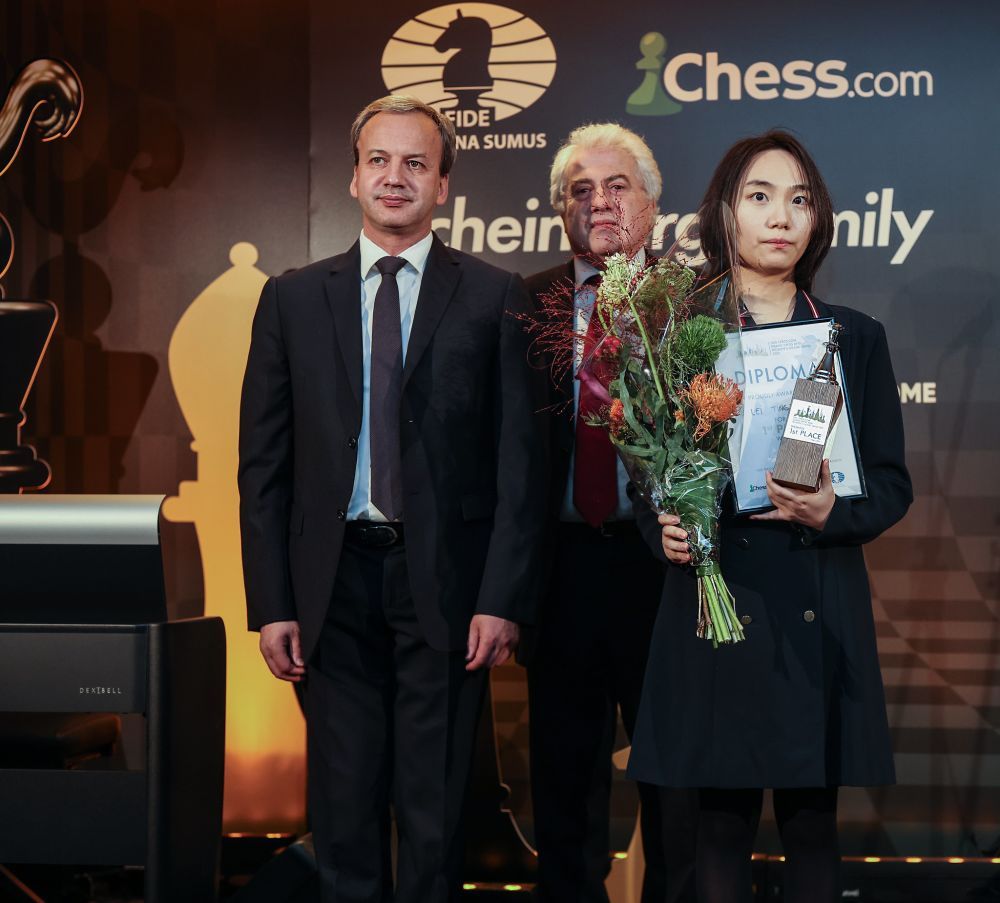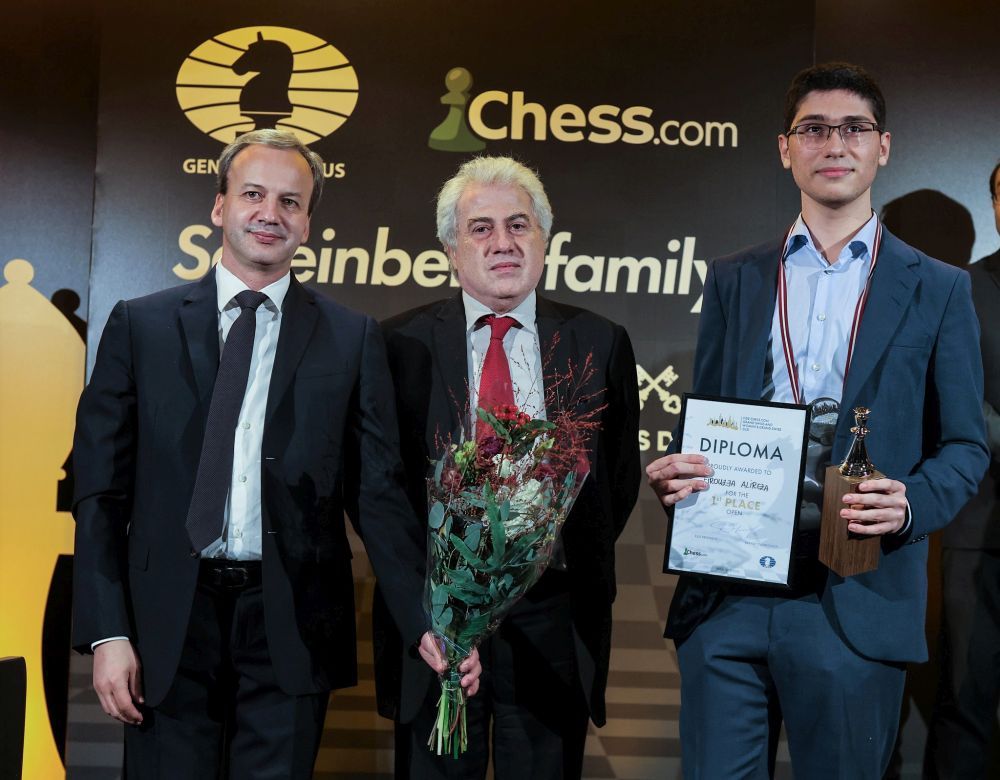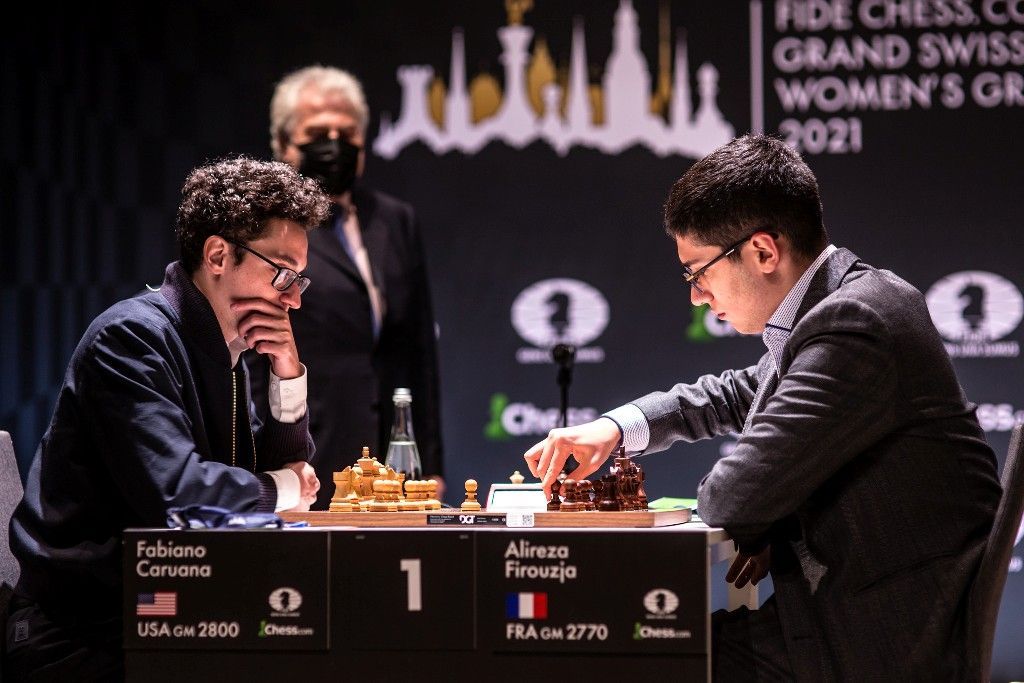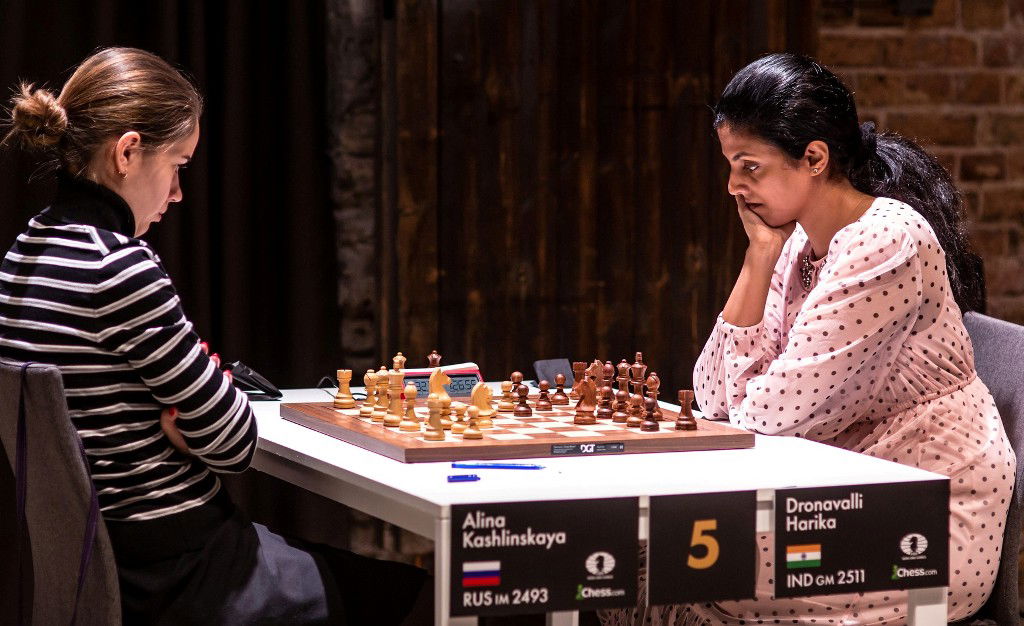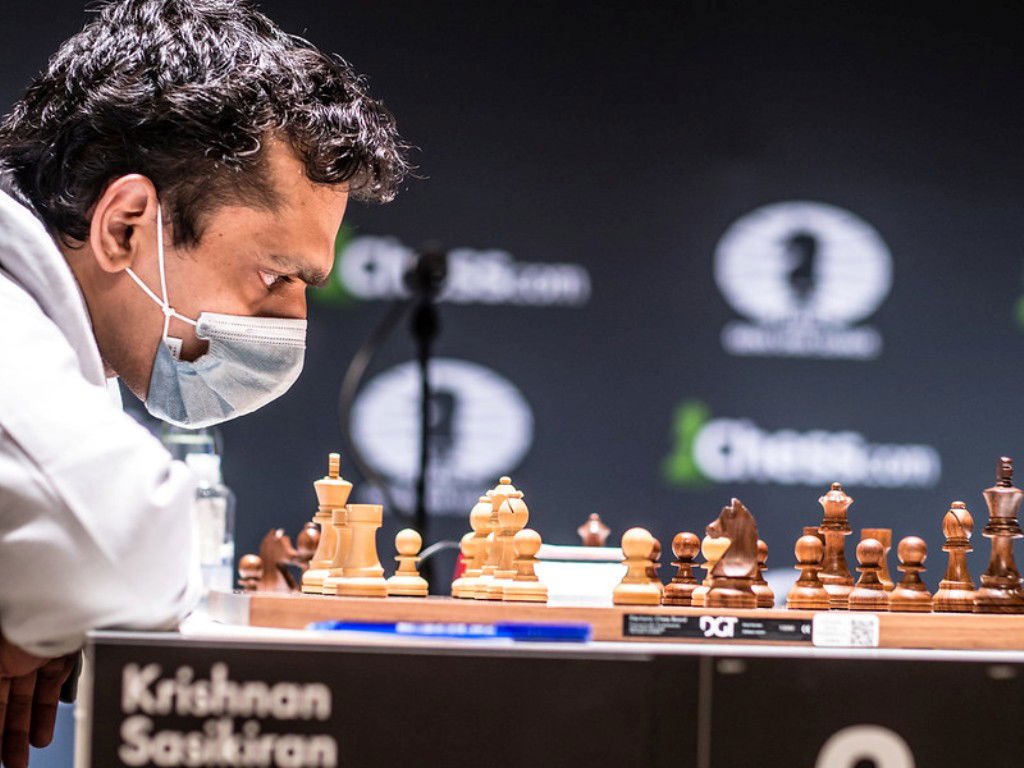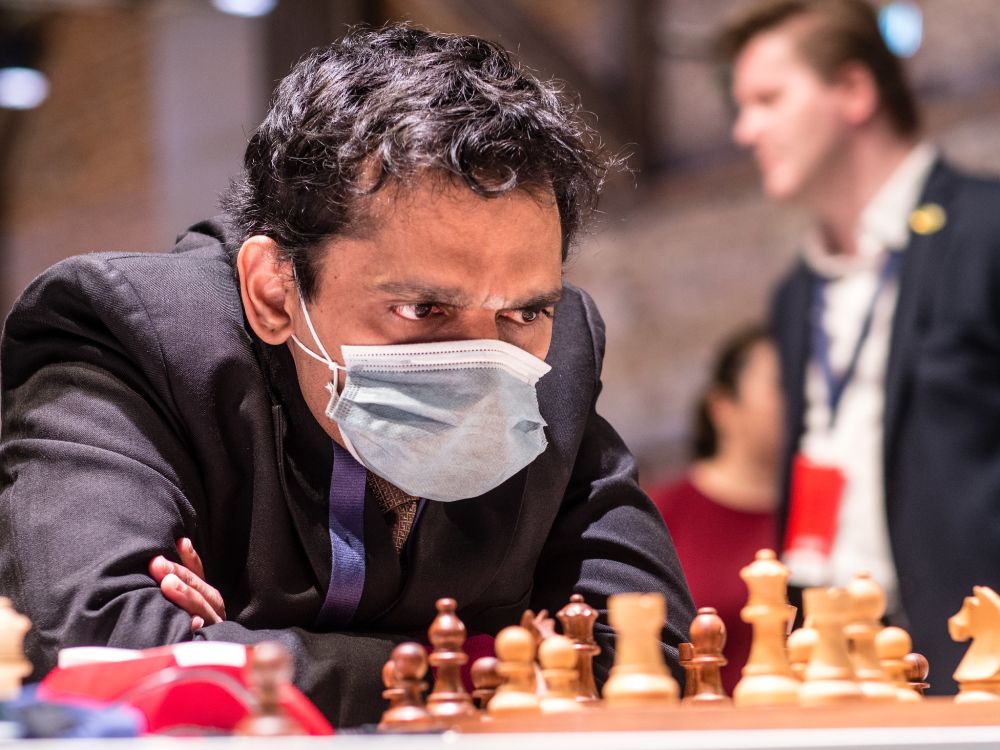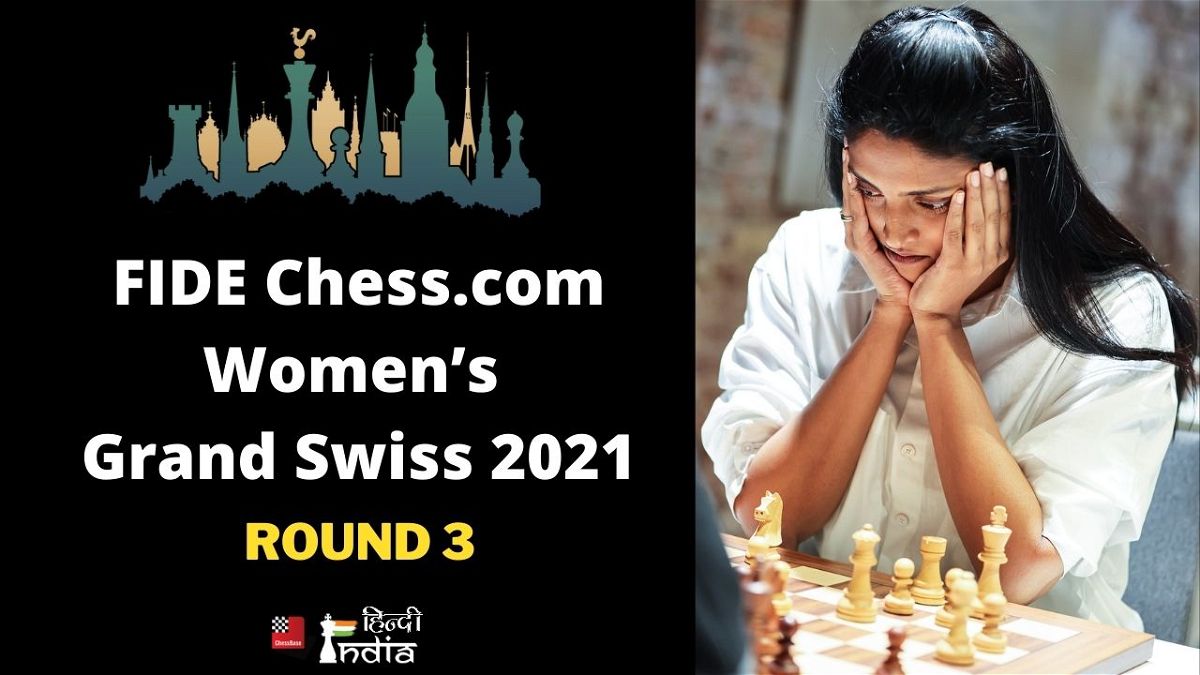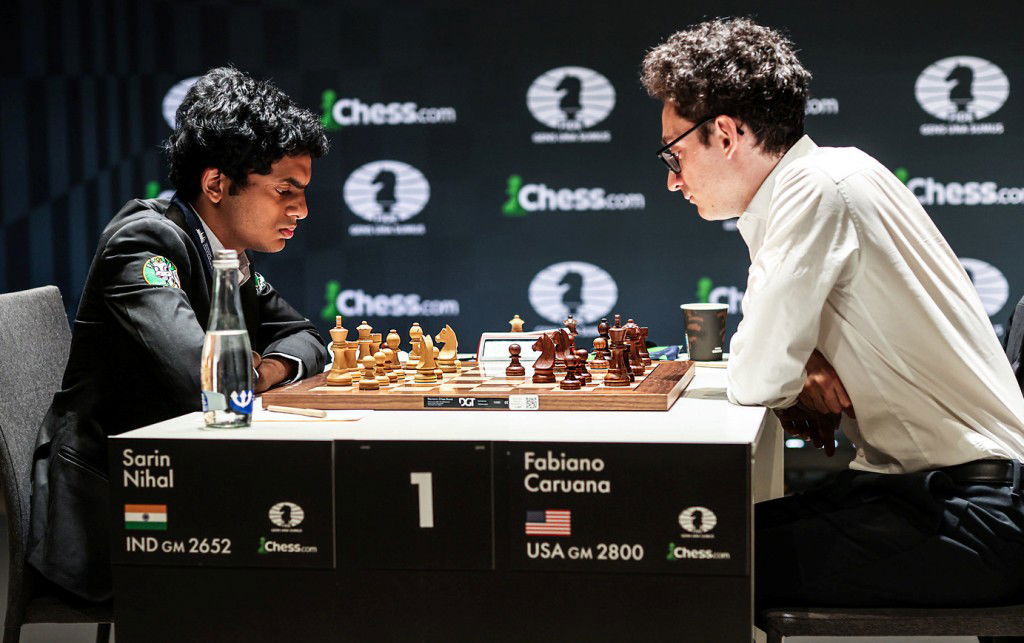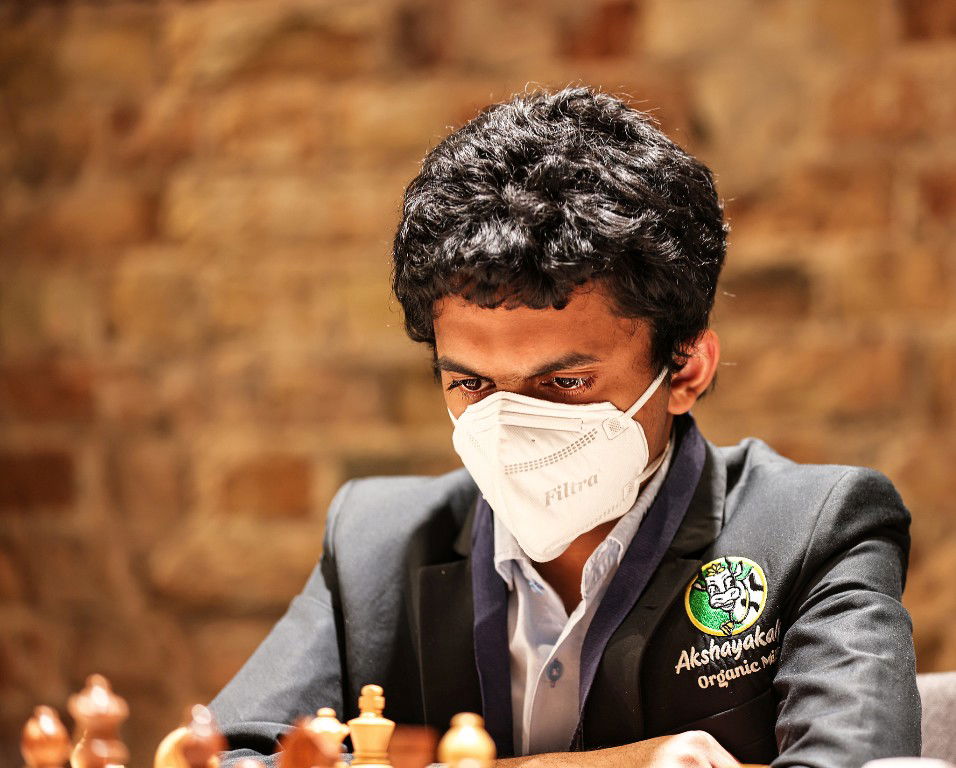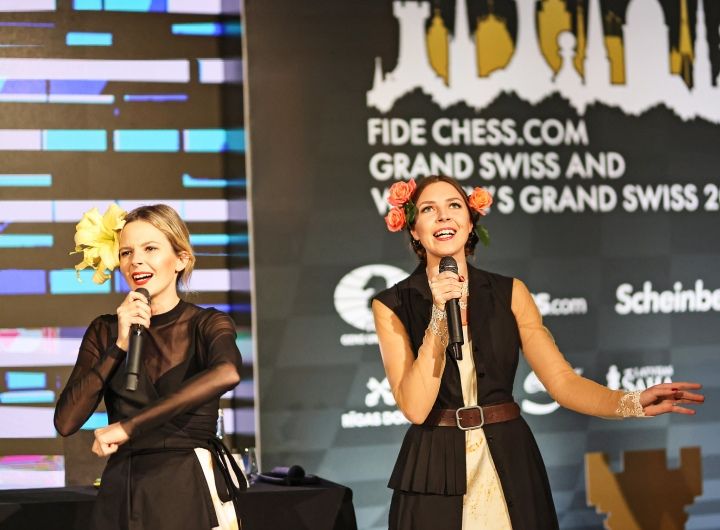Inside the mind of Chess.com CEO Erik Allebest
What does it take to build a massive global platform, just out of passion? In this candid interview, Sagar Shah delves deep with Erik Allebest, the man behind Chess.com. Erik shares his story, from bootstrapping an idea to leading a company of more than 700 people. As you read, you will discover a multifaceted individual: an inspiring entrepreneur, a powerful leader, a deeply emotional husband, an avid chess fan, and an all-around amazing person! It's a rare, closer look into the mind and journey of the force who built not only one, but three successful businesses. Read the article to know the full story.
Passion turned into purpose
Chess.com is the world's largest online chess platform. It's tough to find anyone who plays online and hasn't heard of it! It was formed in 2005 and has grown immensely since then. The platform serves millions of enthusiasts globally. Behind this incredible success is Erik Allebest, the visionary you are about to meet. Recently, Sagar Shah interviewed Erik to understand his journey, from how it started to how he reached where he is today. Stories like Erik’s are roadmaps for everyone to turn our passion into purpose!

Full transcript of the interview:

Can you guess the number of people in this picture? | Photo: Chess.com
Sagar Shah (SS): Chess.com is a remote company, and there is one particular image that made a very big impression on me. When all the people who love chess see something like this, it just makes one feel like it is even possible to build something so huge. There are maybe 700 people in this frame. Does that surprise you?
Erik Allebest (EA): It surprises me every single day, if I am honest. It just makes me a little emotional just to see it, because when I was growing up, chess was a different thing than what it is today. And having been part of that transformation, even a small part that I have had is really amazing. Chess is the greatest game, invented in India, spread around the world, the world deserves to enjoy it and play it, and there is a richness that will never go away. It's the ultimate game. But when I was growing up, chess was something that a very few people did. You had to go somewhere to play it or with someone near you. You probably couldn't find someone near your strength. Either they were much better than you, or much worse than you, or you were both amateurs together. There wasn't a way to play online. You could play on the computer a little bit, but not really online. Getting better was harder. There were books, but it's different from digital training. So chess was just smaller. The tournament scene was different.
Today, if I want to play chess, I just pull out my phone and play chess. I could be playing chess with you in 10 seconds. It's just a different world, and I am grateful to have been part of that. I am grateful to be able to employ so many people who love chess. I hope that chess gets even bigger because it's a great gift to the world. I feel privileged to create a great living for so many people and to put so much money back into the chess ecosystem, put millions of dollars back into coaches, content creators… It's just been an amazing journey. And we are just getting started. (Smiles)
SS: Before our interview, I had been listening to a few of your podcasts. It's very interesting how you started off your journey. As someone who is also sort of trying to build something in the world of chess, it must have been really difficult to build something so huge, to have so many people together. Was it very natural for you that it all just kept happening?
EA: Both of those things are true. I like to say that your life is an accumulation of all of the very small things. You don't do big things overnight. Nothing changes generally super dramatically. For example, if you want to run a marathon, you don't run a marathon in one day. You start by running 100 steps, the next day you run 200 steps, and then eventually you can train to get there. We have built this company for over 20 years since the idea first came into our minds to do this. You can look at the above picture and say, "Wow, that must have been hard to do." But, 20 years times 365 days, I guess that's 7,000 days. You get a lot done in a day, and then 7,000 days later, you have 700 employees. It looks crazy, insane, and impossible, but you have to stick with things and then make good decisions every day. The main thing is that every single day matters. Your life is just the accumulation of small decisions. Did you work hard? Well, if you work hard for 7,000 days, then you can do great things. If you spend 4 hours on your phone scrolling social media for 7,000 days, then you are not going to build great things. So, it kind of depends on how you invest every single day in yourself and in the things you are trying to do.
SS: I think, overall, you are also a little bit of a spiritual and philosophical person. Would that be right to say?
EA: I would say I am a philosophical person. Spiritual is an interesting word. It can mean a lot of different things. But I would say I am definitely philosophical. I am a humanist. I am a believer in human greatness and potential. Maybe I am not as spiritual in terms of some ways that other people might imagine it.
SS: So when you think about incremental things, building something every day, is there something that kind of drives you every single day? Is your personal life and professional life separate, or is it all molded into one?
EA: I would say that I have a work life and a personal life that are separate. I work a lot, but when I am not working, I spend a lot of time with my family. I exercise every single day. If I have a religion, it's exercise. Because that's an important part of not just physical, but also my mental fitness, because that really helps me be able to do hard things and push through things and train myself to work hard and be calm at the same time. I also like to do activities like mountain biking and some silly sports we do in America, like Pickleball and Disc golf. I like to play video games. My son and I play games on the computer like Minecraft and Hell Divers. Then my wife and I spend time together every single day. It's an important thing. We go on a walk. We eat dinner together. We go to bed together. So I definitely have a personal life that is very separate and healthy. But I work all the time. I wake up. I am on Slack. I go to bed. I am on Slack. So, it weaves throughout every single day. I would say that my approach to life is that I try to be balanced. I am not a very balanced person at times because I just try to go hard at everything I do. It's a bit of my personality. I think it's my dad's personality. I think it was his dad's personality. It's my son's personality. It’s my daughter's personality. It's my wife's personality. We like to drive. We like to build. We like to do things and work hard every day.
SS: What does a day in your life look like? Because I am always very curious. Is it like hard work all the time, like 12 hours of work?
EA: I wake up pretty early every day. I sit down with a drink and then I do work for somewhere between half an hour and two hours in the morning, depending on when I get up. I exercise every day with Danny Rensch. We get to work out together almost every day. We talk about work. We talk about life. We sometimes don't talk at all; we just lift weights or go on a run. Then work starts. Zoom meetings and Slack, it just goes hard until the afternoon. Sometimes, I will go outside and do an activity. Then in the evening, l work again for a couple of hours, spend some time with my family, and go to bed. And that's what my life looks like!
And one funny thing is, every Wednesday, I look at myself and say, I don't think I can do this anymore. This is very stressful. This is unpleasant. And then on Thursday, I wake up and say, “One more day. I can do another day, maybe.” So on Thursdays, I wake up and I look at my calendar and I am like “Okay, maybe this is my last. This is it. I can't do any more.” Then Friday tends to be easier, and I am like “Alright. I usually finish a little bit earlier in the day and do some fun things. On Saturday, I will do chores and exercise, fun things with family or friends. And then Sunday, I am so bored. I cannot wait to get back to work on Monday. I love Monday. But again, by Wednesday, the same funny cycle follows.
SS: Are all these meetings and calls that you have related to decision-making? Is that what puts a lot of pressure? How do you see that?
EA: I am involved in every area of the business. Maybe irresponsibly so, maybe too much. But there is so much going on at any given time. There could be legal issues, there can be HR and people issues, and hiring. There can be operations, finance. There are a lot of external calls with people who want to partner together. There is media stuff that I do that takes up a lot of time. But what I really love doing is working on the product, and that is where I get a lot of joy. What are we building next? What does it look like? What does it feel like? Maybe it's a little bit annoying or obnoxious for people on my team, but I am very picky about every single pixel. We have an amazing team with an amazing culture where people will take the feedback that I give because they know that it's coming from a place of driving the mission forward and wanting the best for it. We use a lot of positivity. If people ever see our Slack messages, they would probably say, "Wow, this guy sends too many emojis and smiley faces." But we also have a very honest culture where we can tell each other how we feel and how we think about what's going on.
We have a very authentic culture where everybody gets to bring their real selves to chess.com. No politics, no fakeness, no weird behaviors. Just be yourself. And if you are a funny person, great. If you are a serious person, that's fine, too. But you have to bring your real self to work every single day because that makes other people feel like they can be their real selves. And when people are their real selves, they are their best selves.
SS: It's so well said. I was watching a video of yours, and you were talking to your team, and you were saying like revenue is very important and so on, and then immediately the next moment, you just remove everything and get into a chess-themed dress and start to rap. It was so nice to see because I think it was like a team meetup.
EA: Thank you for reminding me of that. (Laughs) It's just a part of who I am. I am 47 years old, but I feel like I am 17. I am a silly person. I like to be creative. I like to joke around. I like not to be serious because life can be very serious at times. So, why make it more serious than it needs to be? That was a very fun performance for me.

SS: I actually saw the entire video. It was very well done. One person you did mention while we were talking is Danny Rensch. He is someone with whom I think you spend a lot of time together. Whenever I have seen any video of yours or something related to a new feature or a new product that's coming out, you are in that with Danny. How is your relationship with Danny? I guess you guys met nearly three decades ago.
EA: We actually met almost 17-18 years ago. I would say our first meeting did not go very well. You have to read Danny's book “Dark Squares” which is coming out. I have read that book. It's amazing. By the way, I have a whole appreciation for Danny Rensch for the way who he is and how he got to where he is. That is honestly one of the best books I have read. It made me feel a lot closer to Danny. He is my best friend. He is the person I spend the most time with outside of my family. You will not believe what you read in that book because it is such a wild story. But he doesn't present that. You meet Danny Rensch, and you just think, "Hey, this guy is on top of the world. He is the most put-together. He can talk about anything. He is so personable, so happy, so friendly, so insightful." But he has a really, really wild story. Part of that story is that when he and I first met, we didn't really get along at all. I thought he was too confident and too loud, and he had his own vision of what he wanted to do. I had my vision, and we didn't initially come together in a great way.

But we did start working together a little bit, and he started writing some things and doing some course content, training materials, and then over time, he just became more and more valuable and insightful. He had such a vision for what he wanted for chess, about how professional chess could look like and what chess could look like for coaches, trainers, and for improving students, what the World Championship could look like, and what content creation could look like. And when he brought that to my vision about what the product could look like for more amateur-level players like me and below. When we put those two halves together, we were able to have a complete vision in my mind for what chess could be for beginners, amateurs, casual players, improvers, professionals, and creators, everybody on down. It's been really fun to put those things together. He and I have personalities that are similar in some ways. We have haircuts that are similar in some ways. We have habits that are similar. So we go together very well.
SS: It just feels like you both enjoy spending time with each other, which is rare when you work together and also enjoy spending time. That's like the best thing that could happen. Also, I was looking through all the things that you have done before chess.com, and it came up that there are two things that you had built before it. It was the Schoolhouse Chess programme for kids, Wholesale Chess, an e-commerce and chess equipment company. And then chess.com was like the third venture in chess for you. What happened with the other two? Did you learn something from it that you went on to chess.com?
EA: As you can tell, I like two things. I like chess, and I like starting businesses. (Laughs) I started my first business when I was a young kid. I used to go door to door in my neighborhood trying to sell things for money. I was always an entrepreneur, just looking for ways to work and earn. But when I was 21, that's when I really started this first company. I started teaching chess to kids. Not just me teaching one classroom of kids, but going to different schools and setting up many different classrooms. I wrote the curriculum, and I hired the teachers. We were in two schools, then five schools, then ten schools, and over time we were in a hundred schools! I built a program while I was in college and made money. I was doing three at once. I was being a husband, a new father, an entrepreneur, and teaching chess. Schoolhouse Chess was great.
I remember the first time I opened Microsoft Excel and made one column that said income and one column that said expenses. I had to teach myself how to do accounting because I was an English major in school, which teaches you how to think and write, but doesn't really prepare you for business in other ways. So, everything was self-taught. I remember going to a bank and saying, "How do I open a bank account for a business?" and they said, "You need to have a business document that's an articles of incorporation or something." And I was like, "Uh, okay." I went to the government and did the paperwork. So, everything was a learning journey for me. And that's part of my mindset. I was somehow born without any fear of failure or of not knowing something. I will enter into a situation and just say I don't know how to do this, and I am going to learn how. That’s my personality. I was able to do that and start this company.
SS: Sorry to cut you off, but to have this attitude, you have to trust people. I think without that, you can't have such an attitude.
EA: Yeah. You have to trust people and trust yourself. You have to acknowledge that life is just learning. No one is born knowing anything. You have to have a fearlessness that you can go in and learn. I think a lot of people are too afraid to acknowledge things they don't know, or they are too afraid of the process, or they are too afraid of failing. There is no such thing as losing if you are learning, right? The only way you lose a chess game is if you don't learn something from it. Otherwise, it's a great learning moment, and life is like that the whole time.
I did this first business with Schoolhouse Chess and grew it to be pretty big. We had dozens of people working for me. And it was a great experience. I was able to start Wholesale Chess, the other business, while I was doing Schoolhouse Chess, because I needed a lot of chess equipment for this program. I thought that I would buy chess equipment. But there was no really good place to buy chess equipment online. This feels like a hundred years ago, but it was 25 years ago, before Amazon was selling chess equipment. We became the Amazon of chess equipment. And now there are many online retailers like House of Staunton and others. You can buy directly from India or China. Now it's a different world, but back then it wasn't. We had to buy container loads of chess equipment, bring it in, and then sell it online. There was no Shopify. There was no big commerce. There was no easy way to create a storefront. So I had to code. I wrote code and then partnered with my college friend Jay, who taught me how to love and learn chess. My mom taught me how to play.

Jay and I are still very close friends. He built a whole e-commerce platform. I wrote the front-end code, and he wrote the backend code, and together we launched Wholesale Chess. I was buying container loads of chess equipment from China. I was manufacturing and designing bags. I was working on how to make chessboards better that people use. I designed the pieces of the demo boards that are most popular today.
SS: The ones that go inside the packet, without the magnet ones?
EA: Yes. There was no portable chessboard for a giant chess set. So, we designed the very first portable board for giant chess sets. We did so many things to try to innovate and make chess equipment better. And we grew that business for a couple of years, and it got pretty big. I was like, "Wow, this is interesting." But then, after a while, it wasn't very interesting. I got bored, I got depressed. I was financially successful, but I wasn't happy. My wife said, "I think you need to go back to school." I was like, "I don't want to do that." But she was right. She basically did the application for me to Stanford and a few other schools. I was accepted to Stanford, which is probably a miracle for me. It was a real life-changing moment for me. That's so nice.
SS: You spoke about your wife. Is it possible to tell us a bit about your love story, because I think you got married early? You were already a father when you were just 23. Is that correct?
EA: Yeah. My wife's name is Amy. She and I met within one week of when I turned 18. It was the very first week at college. We happened to be paired in a social group together, the very first week at school. I am going to be emotional talking about this, but it was 30 years ago... (Takes a long pause)

SS: It's a very beautiful moment for you to remember. Sorry.
EA: You really got me, man.
SS: Sorry about that. I didn't know that it was such a deep memory for you.
EA: (After a long pause) We met 30 years ago on the lawn at a social event, and I thought she was the most beautiful person I had ever met. It was fun and we immediately started talking. We had such a banter together. I like to banter and tease, and she bantered and teased back. We started dating not long after that. Then I left for two years, and at the time, I was a religious missionary in Argentina. Then she left and did the same thing in Chile. So, we didn't see each other for almost three years. When she got home, we wrote each other letters every week. We still have those letters. So, it's kind of a beautiful story. This was long before email. So we wrote letters and drew pictures and did all that together. When she got home, I asked her to marry me, and we got married, not that long after. We were very young and very much in love, and then we started having kids right away.

She was always supportive of everything I have ever wanted to do, and I have been supportive of everything she has ever wanted to do. The answer is just always yes. I am thinking about this, I would like to go out and do this, and the answer has always been yes. I have always said yes to her. She has always said yes to me. There has never been a no. There is always just support, support, and support. That's been amazing.
I have to say my wife is really the reason that I even started chess.com, because there was a time when I was working a kind of miserable job doing technical writing. Not that there is anything wrong with that, but the company was dying. It was my first job out of college. I had started the chess company before, and then I tried to do something else, and have a career, and go get a job. I was never meant to be employed. She knew that, and I was miserable. She told me you can do this. I think there are a lot of spouses who are afraid and say, “Don't try it. Don't do that.” But it was the opposite. I was a little hesitant. She was like, "No, you can do this. I believe in you. If you go touch it, it will work." And so I did. She was very instrumental in my entrepreneurial journey. She also got me into school, and she has also built our family. And now, she is a very successful podcaster. She has a podcast called “Breaking Down Patriarchy”. She is a feminist scholar and studies and educates people on gender and the dynamics of patriarchy. She is amazing.
SS: That’s amazing to know! Does she also like chess?
EA: She does not play chess. She reads a lot of books. She loves to dance and do fitness. She is an amazing cook and a phenomenal mother and wife, but she doesn't play chess.
SS: While I am talking to you, I have a small question for you: Do you know that when you spoke about yourself, you said you have the kind of attitude to get things done, which is like a very strong attitude? At the same time, you are so emotional. You have so many amazing memories, and you are overwhelmed. I also saw a previous interview where you were kind of choked with a lot of emotions coming out. It's like a very different kind of mix. To be on one hand like really, really strong about something, and on the other hand, very emotional. Do you see that in your life?
EA: These are deep topics. You are going to get me emotional again. Growing up, I was a little bit of a different person at times. People would talk about being left-brained and analytical or right-brained, creative and emotional. I never really identified as only one of those. I am kind of both of those things. I am a little bit of an unusual cat.
SS: I think it helps you. When it's needed, you can power through. When it's needed, you can really feel things deeply. Could you tell us what happened with Jay? Because you stayed back on chess.com. We have Danny, who joined in later. Because everywhere I read about chess.com, it said that it was started by you and Jay together.
EA: First of all, Jay and I are great friends. We are planning a trip together right now. We are going to be in Vegas together for the freestyle event coming up. We are excited about that. Jay and I started Wholesale Chess together. He was the developer there. He was an owner at that company. Then we started chess.com together. We were the first two. We worked together for many years. I think Jay and I might tell this story a little bit differently, but it's very hard. It would be very hard to drive a car with two different people with their hands on the steering wheel. That's a challenge! Running a business is sometimes not that different from that. I am a very strong-minded person, and I was trying to drive the car, and I think he also had ideas and visions of that. Sometimes, we felt a little bit of tug there. Also, it's hard sometimes for friendships and work relationships to mix as well.
Jay and I sometimes had conflict, positive conflict usually over different things and decisions. I am sometimes not the easiest person because I drive hard, and I have strong feelings. He drives hard and has strong feelings. But we did work through that for many, many years. I think the main reason is that in 2010, we started a different business together called exercise.com because we didn't think chess would ever be as big as it is. We wanted to keep doing chess, but we also wanted to start a different. I was getting into fitness at the time. We thought that we could build a bigger business doing that. Turns out we were wrong. But he went with me and did that. I think that derailed him a little bit from focusing on chess obviously. From there, he also got very interested in different crypto things. He wanted to do crypto gaming and some other things. He got a little bit distracted on some of the other things, as did I. I came back to chess sooner and with full focus, and he came back to chess later and not exactly with full focus there. We did that together for a while until it didn't work. He stepped aside, and we hired someone else. He probably would say that if we hadn't gone and done some of these other things that we probably would still work together today. But life takes a lot of different turns.
SS: Thank you for sharing that story. It's maybe one of the most important ones in chess.com's entire historical development. I also got to know that there is this amazing story that is spoken about quite a lot - the domain. I think close to $50,000 was invested at that point for the domain. Now it seems like a no-brainer to invest that much money in a domain. At that point, perhaps it must have been quite a tough decision. It also shows that you know the value of things. Could you tell us about that because it kind of changed everything in chess?
EA: There were some people who were trying to do chess before they had registered the domain name in 1995. They had tried to create a chess software business, which they did, but they had spent too much money. They had to go bankrupt because they owed a lot of money, but they had some assets. They had a patent. They had a domain name. They had some software code. But they owed millions and millions of dollars to investors, to creditors. I reached out and said, "Who owns chess.com?" And I met the people who did. Of the three people who were originally there, two have passed away, and one is still alive. He and I have been in contact. When they went bankrupt, my friend Zach and I were thinking of ideas together. He was like, "Hey, I think we can buy the domain name out of the bankruptcy." He was on the phone, and he made the bids. I was writing the cheque because I had money from selling the other two businesses, Schoolhouse Chess and Wholesale Chess.
To us, it was kind of a no-brainer because we knew the value of it. We were the highest bidders. We ended up with it. I do think that it came about because of curiosity. Who owns that? What is it worth? Is there an opportunity here? Just a relentlessness of pursuing something and, frankly, getting very lucky. We were very lucky that the domain name was becoming available. We were very lucky that it was going into bankruptcy. I was very lucky that I happened to have enough money to pay cash for a $56,000 domain name 20 years ago. That's not normal for a kid my age at the time, in their mid-20s. It was just a very fortunate series of events that got us there.
SS: Very cool. When you started chess.com, you were bootstrapped. I think at that point, there was no one ready to invest, but that actually helped you because, in a way, you started thinking about monetizing profitability right from the word go. Then, after a few years, there are now a lot of investors in chess.com. How do you see these two different periods, because when you are bootstrapped, the value of every single penny is very high? When you get investors, there is a huge inflow of money. Can you share with us both these phases?
EA: I was at Stanford at the time. I did meet with different investors, advisors, and people. This was in 2006 and 2007. Everybody told me that chess really wasn't investable, or they gave me some very low offers. I will give you $100,000 for 30% of your business. It was insane. Because even at the time, I knew it was worth more than that. They said no. I still had some cash. So, I was the investor right at the beginning. Over time, I ended up investing $500,000. It's basically all the money I had ever made. Then we used that to become profitable after a couple of years. I think in 2009, we started to become profitable. But as you said, we hired slowly. Because we couldn't afford not to. I think Danny Rensch still has his offer letter where we offered him like $25,000 a year for a full-time job. It's not a lot of money, but it's what we had. We hired great people, but inexpensively, and I wasn't getting paid for many years. Here is my wife and new kids, and a lot of people would say, "How does that happen?" But again, my wife believed in it all the way. Eventually, though, we became profitable, and when we had extra money, we would hire someone.
I do remember that at one of our first company meetings, there were 30 people, and I said, "Guys, I think this is as big as the company will ever be." And then, the next year, we were 45 people, and I said I think we may get to 50, but that's it. Once we got to 100 people, I stopped saying that. It's been surprising ever since! But we were very frugal. We are still very frugal because money matters. We actually never took investor money. We never needed it. But what we sold was ownership. But the money wasn't cash into the business. It was cash to the owners because Jay, I, and others had worked for so many years for so little money. Here I am now, with four kids and never owning a house and working my butt off. Then some investors come and say, "Hey, we want to buy in." It's hard to say no because I have been working for so long without really any financial return. Eventually, we had one investor. That investor left. Then we had a new one. But they were never putting cash into the business. Still to this day, we have never needed or used investor cash.
SS: But did having an investor ever impact? You have some vision, and the investor has another vision. Does that happen?
EA: With our first investor, it never happened. Because he was a chess player. He was just very excited about the company. He was very helpful. But he said he would be our forever and our only investor. But then, a couple of years later, he said, “Hey, I need to sell my shares.” And we were like “What?” We thought that this was going to happen forever. But then, we found another investor who loved chess and had a billion dollars. He had sold a poker company, and we thought, "Oh, this will be our last investor. We will never need another one." He was very helpful on the mission of growing the game. We thought he would be there forever. And then a few years later, he said, "Hey, I need to sell." We thought he would be our forever investor. By the time we were so large, we couldn't get just one person. It had to be a larger investor.
General Atlantic has been a different type of investor. They have been more of a traditional style investor. At first, I was like they would stay out of our way. We will do our thing, and that will be great. But they kind of just slowly ramped up the expectations of us running more efficiently and changing how we did things into more of a data-driven, product-driven growth. I was so stubborn about that because I was like, “Don't tell me what to do. We have done a great thing. We are going to keep building products that people love, and then chess will be more popular. I was hesitant and resistant. But what I have learned over time is that these are the same thing. I was a little bit stubborn at first. There was always a little bit of friction, which was fine. It still happens sometimes. But they are always wanting us to get better. What I have learned is that as we get better as an organization by tracking what we are doing more, using more data, and making better decisions, it actually ends up serving the game. We build better products with a better team and with more resources to serve the mission. So it has actually come to the same thing, and I didn't feel that always, and I didn't understand it at first. I felt like it was like money-investor. It bothered me a lot. But now we have just gotten to be a much better organization. I am grateful for it.
SS: There is more structure to think about and stuff. It also speaks about your flexibility to change yourself. Not to remain like one way of dealing with things. There is this thing that chess.com has done very interesting stuff over the years in the world of chess. There have been companies that have been growing in the chess ecosystem, and chess.com has acquired them. This happened quite a lot. I think first it was the Play Magnus Group that acquired a few things, and then eventually chess.com acquired Play Magnus. What is your thought behind this? Because sometimes when there are more players in an ecosystem, it's nice to have different people, different companies. But here it feels like chess.com is one of the major companies, and there are very few after that. Can you take us through this topic a bit?

EA: Acquisitions are hard. Our first acquisition was actually a company called Chess Park. It was very early. They were a chess server. It was a stupid thing to do, but we bought their customer list, thinking there would be a lot of users, but it ended up being of value. Then we acquired Chess Vibes, which really was us buying Peter Doggers, who was the best chess journalist at the time and maybe still is, although there are a lot of chess journalists now. That was actually a really good acquisition for us because Peter was amazing and really helped us on the professional side for many years. He continues to work with us. After that, we didn't acquire a lot. Then we acquired Chess Bomb, which was a broadcast platform, good and bad. It's always harder to integrate than you think. Now, there is very little of their code that remains. We have had to rewrite things. But it was a part of the market we wanted to be in. We thought it would help accelerate.
We probably could have and should have just built our own thing from the start. Then we acquired the Komodo Chess Engine, because we wanted the expertise of that. We still use it, but a lot of it is being rewritten with Torch, which is the new engine that we work with and work on. The big one you mentioned is Play Magnus. We were in the mode of acquiring and then integrating. They were in the mode of acquiring and just stayed separate in some ways. They were also acquiring lots of different types of businesses and publishers. They were trying to build a lot of different things into an ecosystem. The good of what they did was that they brought resources and investor money in to try to build these different businesses, and they were pushing on things which made chess.com try to work harder. We were very competitive in that way. But we were spending a lot of time building the same things.
They had Chessable, which remains the best place to do courses and online training. They had the tour that had Magnus Carlsen. He wasn't playing on chess.com. They had some other businesses in there. Those were the three main things we wanted. It was the tour, Magnus and Chessable, because those were parts of the market that we were not as strong in. We ended up doing the acquisition.
On one hand, we definitely overpaid because the value was not there. Their revenue was climbing, but they were not profitable. Probably within two, three, or four years, they would have gone out of business. Because the economy was so bad. They didn't have a viable business model like we did. The other thing is that their tour business, the sponsorship money, a lot of it was crypto money from FTX and others. The economy has changed since then. It's been a lot harder to get revenue there. In hindsight, most of those businesses were not self-sustaining. Some of them have been sold off or have been divested or kind of given back because they don't fit into chess.com's model. But that said, we picked up a lot of great team members. Magnus Carlsen is playing with us. There are a whole lot of people together in the chess world, focused on kind of one mission forward instead of doing the same thing. There is competition in the market. There are hundreds of apps. There are new startups every day for different things that we see. Lichess has a great play zone and a different kind of community and model. The competition remains to grow the game and to be the best as possible. But the truth is, Play Magnus was not a healthy company. Was it a good acquisition? Probably. Could it have gone a different way? Also, probably. We are now one team together at chess.com, Chessable, and the other things we do. We feel very united in the mission, and we have been able to really grow from there.
SS: Very interesting, take. You mentioned Lichess. How do you feel overall about Lichess and its existence in the space of chess? Because both are play zones, quite different from each other. What do you feel?
EA: Every healthy ecosystem needs multiple players, as you said. Everyone has different tastes, needs, and preferences. It’s a very healthy part of the ecosystem. They are also a big barrier to competition. Imagine today, trying to think you are going to create a play server. You would have to try to beat Chess.com, Lichess. There is just no space. It's a very healthy dynamic with the two. People can have preferences. We like to joke around. If you like an artificially high rating, go play on Lichess. I am kind of teasing and not teasing at the same time, but they do have an important place there. They have a different business model. It's a donation model. They don't have the resources that we have. We feel honored as a more capitalist or more financially driven, we drive revenue, and then that revenue goes back to people, the 700 people you showed in the picture. It goes out to the professionals who are playing and want to have tournaments for money. It goes out to content creators, course creators, and all the different people who are involved in the chess ecosystem. In our mind, we feel very honored to be able to have a healthy economy to grow the game. Because if there’s no money, there’s no jobs, there's no prizes, there's no room for professionals.
We like our model and think that driving revenue into the game brings more people in. You would not be able to do what you do if you didn't make money doing what you do, right? Then you can employ people, you can travel, and you can do these things. I understand that there are people who think chess should be free, and there shouldn't be money. But I think that having money grows the game. I think our thesis and philosophy of that has proven out over the last 20 years, that driving for that has brought more and more greatness to the game, more money to the game, which brings more people to the game to help.
SS: We did speak about Magnus being a part of chess.com and this acquisition. There is a very nice picture of you becoming Magnus. I think this was during the World Championship match, if I am not mistaken. How has it been being with Magnus, him becoming a part of chess.com?

EA: It's been awesome! He is a great guy. All he wants to do is play chess and play the kind of chess he likes. That’s what drives him, his greatness on the chessboard and on the digital chessboard. It's been really fun to work with him. I love seeing his rivalry with Hikaru. They are both just amazing players at the very top of their game. You saw it in the event during the Norway chess. It's been a joy to get to know Hikaru personally. He and I message frequently about other things that aren't just chess, whether it's the economy or whatever it is. We talk about other things. I get to see Magnus at different times. I have played poker with Magnus. He is a very dangerous poker player. So, it's been kind of fun to get to know these guys. It's been awesome to work with the very best chess players in the world.
SS: Amazing! Talking about chess.com and its product, mainly the play zone and everything that involves there - the events page, the learning platform, and all. How do you see this evolving? There is so much on the platform. There are so many different things. There is also a lot of feedback that goes online. How do you prioritize it? What's your road ahead?
EA: That's the hard thing. There is a lot of great stuff, but it's never good enough. We are always driven to make everything better. Chess is a hard game. The code of chess is hard. It's not easy. There are just so many corner cases of different things. We are trying to make game reviews better and smarter all the time. Of course, it makes mistakes because chess is very complicated. We are always investing in different things. We have a whole lot of new products coming and new things we are doing, but we are also working on improving and fixing things that we already have. It's just endless. It is complicated. It is hard to prioritize.
There are so many new ideas we haven't even touched. There are so many things we are currently working on. There are so many things we wish we could be working on. There are so many things that are broken. There are so many things that could be improved. It's very hard to prioritize all of that. The part of my job is to help do that. It's always hard because I know everyone has their own personal wish list of things that chess.com would do. I have my own personal wish list. But it's very hard to do that. So we try to have a balance, everything from building out a global chess network where there is servers all over the world to investing in fair play and protecting the game, countering against cheating, to building new learning technologies with game review and lessons, to making it more fun with bots and a virtual coach, to making puzzles more fun and more interactive and more enjoyable, to launching the new courses on chess.com where a whole audience of people who are not on Chessable but on chess.com can now access it. We have to do that on three platforms: on the web, on Android, and on iOS. We are building ChessKid, another platform, and trying to do a mini chess.com there. It is endless. It is massive. It is scary. It is fun. At the end of the day, we are all doing our best to serve and honor this great game.
SS: Do you think if you had like 500 more people coming in and you had the resources to have them, then all these things could be prioritized, or that leads to new problems?
EA: Both of those things. More is not always better. I do think we will continue to grow over time. I think we are at a good size. We could have some more because we know what our products and work streams are. If we can fully staff those out. Sometimes, there is one designer who has to serve three different teams. Then one doesn't get enough, and we can't work on it. Once we can fully staff out our work streams, which we have, we will be in a better place. We are getting closer and closer to that.
SS: I am going to ask you one final question. This is about India. Because Chess.com India exists. It's maybe one of the most successful, at least on social media pages there. It has a lot of followers. You have a nice team now in India. How do you see India, the team, and any future plans there?
EA: India is such a special place because it’s the birthplace of chess and the renaissance of chess. It's so important on both sides. We are seeing some of the best chess players in the world coming out of India, with Gukesh, many others very close to him, and on his heels. India is so fascinating. We are going to continue to invest there, both in the team and in making sure that the product works well for everybody there. The content is local and fresh. We love seeing all of the amazing people from India who join chess.com and enjoy the platform. We appreciate that.
It is a challenge because of the different economics and cultural differences. It does make it harder. We have a much lower subscriber rate in India than we do in other countries. We have a much lower advertising revenue, almost none, because the economy is so different there. On the one hand, we are kind of subsidizing our growth in India by other countries. We make money in other countries and use that to fuel India. We appreciate every single subscriber in India who has a premium membership. We appreciate you. We have tried to price our memberships at a rate that feels appropriate for the country, but we know it's still out of reach for some people. Some people just don't want to pay for certain services. That's fine. But again, our investment is in some ways a reflection of the economy and the situation there. We always have to monitor this. We know that India is thriving in many ways. We hope it continues to thrive economically. There will be more growth in all areas of the country. That's good for everybody. So we are very bullish on India as a country. We hope for peace for you, for the region, and for everything that's going on there. We want stability, happiness, growth, and chess for everyone.
SS: Well, Eric, thank you so much for spending more than an hour with me. It was a pleasure talking to you. I hope to see you soon in person as well.
EA: Hey, great to meet you! Thank you so much. Thank you to all your fans. Thank you to everyone in India and everybody who reads this. It's an honor to be here.
Check out the full interview here:

